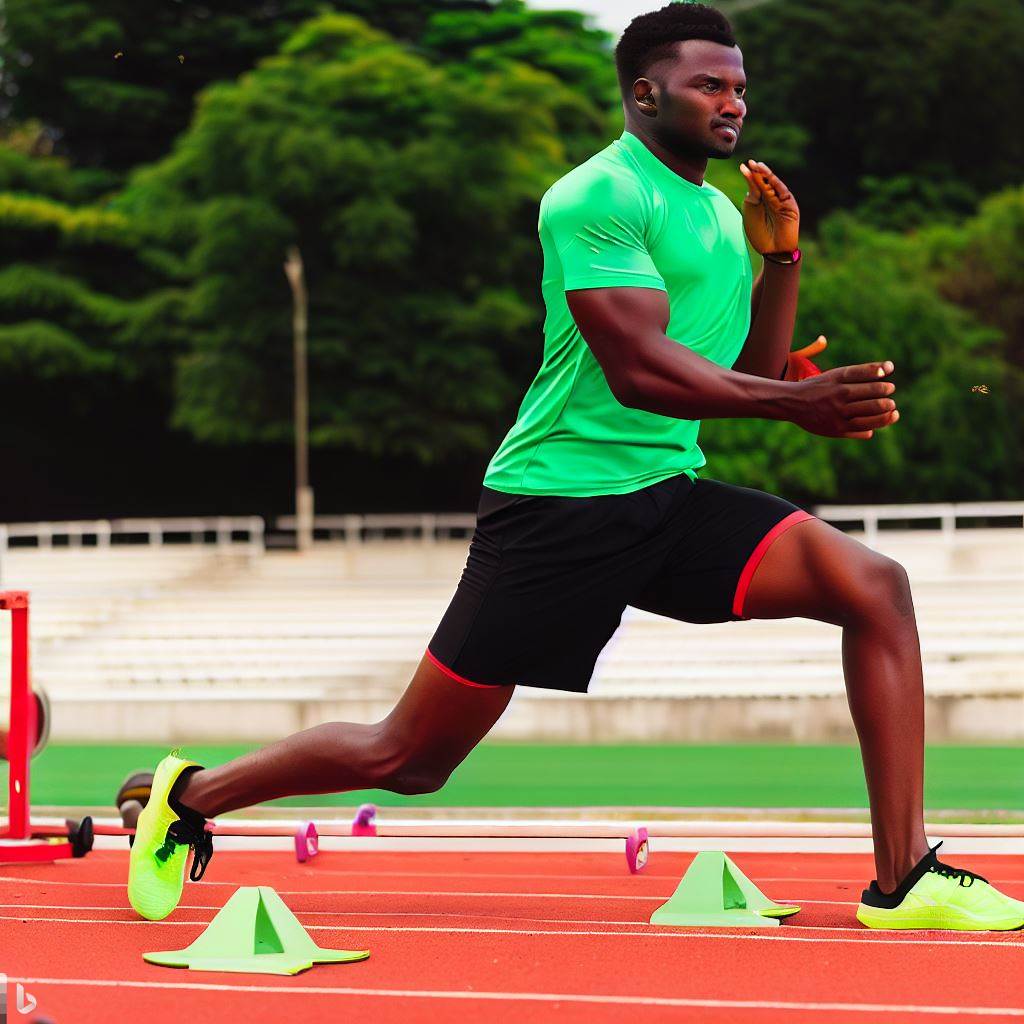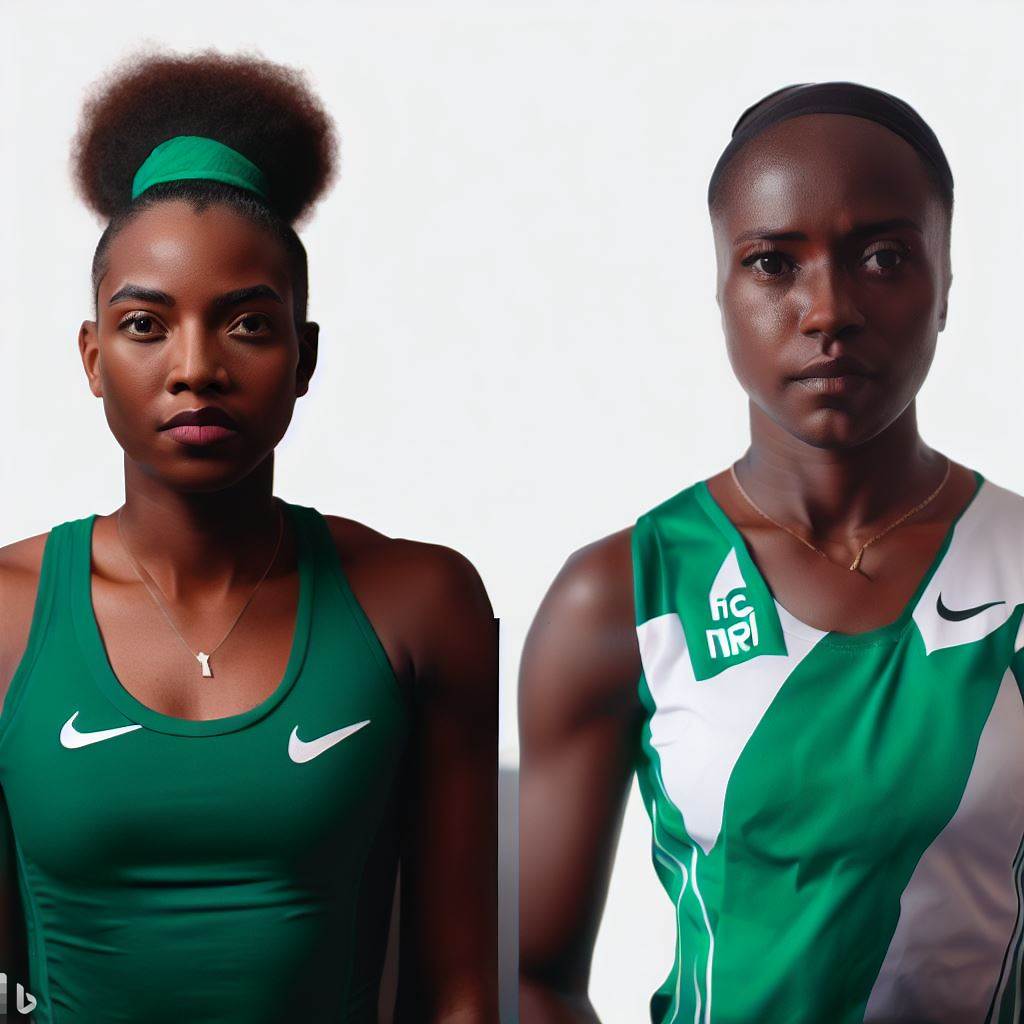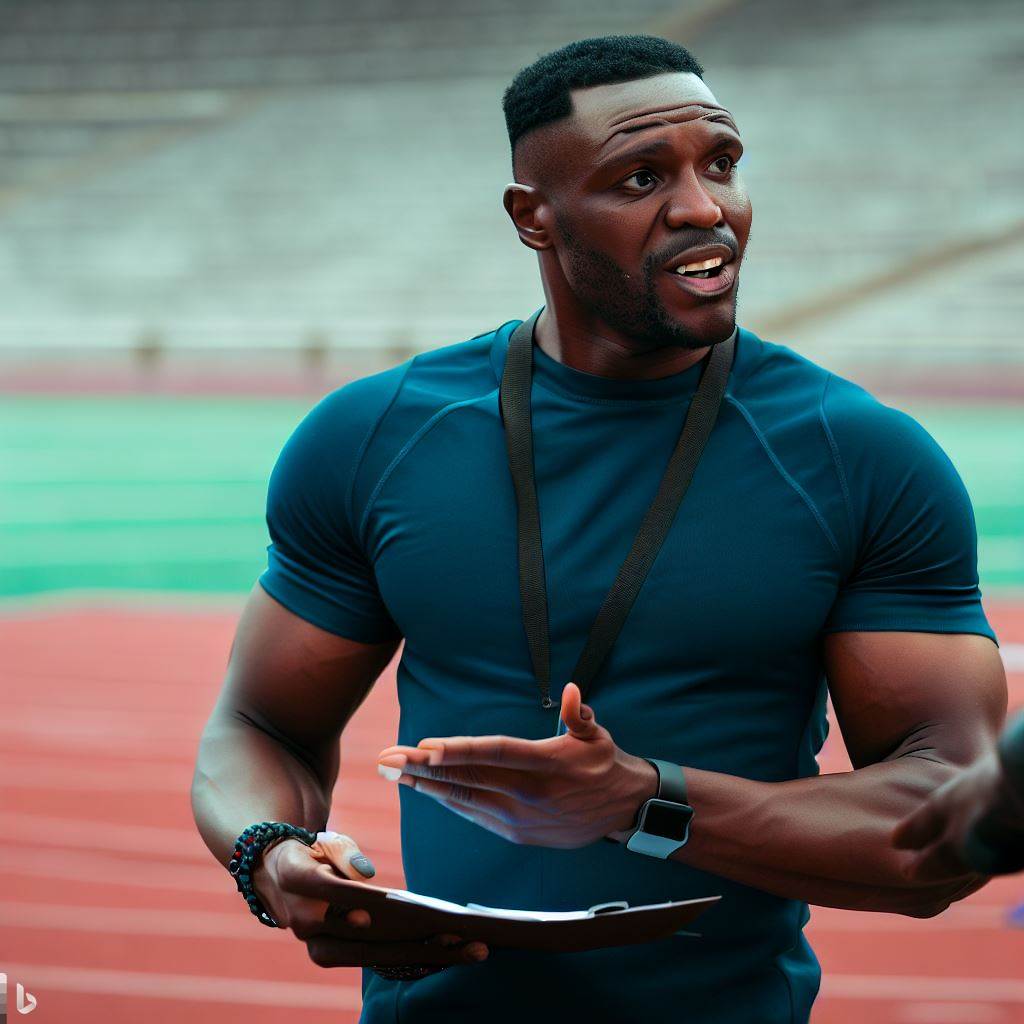Introduction
Sports have become a fundamental part of Nigerian culture, promoting national unity, and stimulating economic development.
Nigeria has an extensive history of sporting excellence, particularly in football, basketball, athletics, and boxing. The country’s youthful population and natural resources also create vast opportunities for growth, innovation, and prosperity.
This blog post aims to explore the economic impact of sports in Nigeria, including their contribution to job creation, national income, foreign exchange earnings, and social cohesion.
By shedding light on the intersection of sports and business, we hope to inspire policymakers, investors, and stakeholders to leverage the potential of sports as a tool for sustainable development in Nigeria. We will delve into the various sectors of the sports industry, such as sport apparel events, facilities, media, and tourism, to determine their economic significance.
Additionally, we will highlight the challenges and opportunities facing the industry, including insufficient funding, inadequate infrastructure, and lack of private sector involvement.
Finally, we will examine case studies of successful sports-based initiatives in Nigeria and draw insights from best practices in other countries.
Through this analysis, we hope to advocate for the creation of supportive policies, partnerships, and investments that can optimize the impact of sports on the Nigerian economy and society.
Read: Inspiring Stories of Successful Nigerian Athletes
Positive Economic Impact of Sports in Nigeria
Sports play a crucial role in the economy of Nigeria, providing numerous benefits to various sectors. Here are the positive economic impacts of sports in Nigeria:
Job Creation and Employment Opportunities
- Sports create job opportunities for many Nigerians who are either directly involved as players, coaches, referees, or in sports marketing and media.
- Indirectly, sports lead to job creation in other related sectors, such as infrastructure and services, such as transportation, accommodation, and security.
- In turn, this helps to reduce unemployment, improve income levels, and boost economic growth in the country.
Boosting Local Businesses
- Organizing sports events, such as tournaments, attracts a significant amount of local and international attention and spectators.
- This increases the demand for local products and services, including food, drinks, clothing, and merchandise, leading to a boost in local businesses.
- Also, sports team sponsorship and advertising opportunities create business partnerships and collaborations, further driving economic growth in Nigeria.
Increase in Tourism and Revenue
- Nigeria is home to many world-class sports facilities and hosts several international sporting events.
- This attracts tourists from all over the world, contributing to an increase in the tourism industry and the revenue generated from it.
- The tourism industry provides job opportunities for many Nigerians, and its growth creates a ripple effect across the entire economy, boosting several related sectors.
In essence, sports have a significant positive economic impact on Nigeria, creating job opportunities, boosting local businesses, and attracting both local and international tourists, contributing to economic growth.
Therefore, the government and private investors should continue to invest in the sports sector to maximize these benefits and drive further economic development in the country.
Read: Nigeria’s National Sports Policies: An In-Depth Review
Negative Economic Impact of Sports in Nigeria
While sports undoubtedly have a positive economic impact in Nigeria, it is important to acknowledge the negative impact that can also arise.
Here are some of the ways in which sports can negatively affect the economy:
Corruption and Mismanagement of Funds
- Corruption is a major issue in Nigeria’s sports sector, with funds intended for sports development often misappropriated or diverted for personal gain.
- This has led to a lack of investment in infrastructure and facilities, as well as limited opportunities for athletes and coaches.
- Corruption also discourages potential investors from supporting the sector, which hampers its growth and potential.
Cost of Hosting Major Sporting Events
- Hosting major sporting events can be a massive financial burden for the host country, and Nigeria is no exception.
- While such events can boost tourism and attract foreign investment, the cost of building new infrastructure and facilities can outweigh the potential benefits.
- Nigeria’s bid to host the 2014 Commonwealth Games was ultimately unsuccessful, in part due to concerns over infrastructure and funding.
- This highlights the need for careful planning and management when it comes to hosting major sporting events.
Lack of Investment in Grassroots Sports Development
- Grassroots sports development is a crucial aspect of building a strong sporting culture in Nigeria, but it often receives inadequate funding and support.
- Many talented young athletes have limited opportunities to improve their skills and compete at a higher level, which can stifle their potential and limit the growth of the sector.
- Investment in grassroots sports can also have long-term economic benefits by creating a pipeline of talent that can go on to represent Nigeria at the international level.
Overall, sports positively impact Nigeria’s economy, but potential negative consequences must be acknowledged.
Addressing corruption, planning events carefully, and investing in grassroots sports can mitigate adverse effects and promote sustained economic growth in the sector.
Read: Influence of Sponsorship on Nigerian Athletes

Discover More: Nigeria’s Assistant Coach Success Stories in 2022
The Impact of the Nigerian Professional Football League (NPFL) on the Economy
The Nigerian Professional Football League (NPFL) is the top tier football league in Nigeria.
The league started in 1972 and is managed by the League Management Company (LMC).
The NPFL comprises 20 teams competing in a round-robin format, with the team earning the most points crowned champions at the season’s end.
Overview of the NPFL
The NPFL, a professional football league, allows Nigerian players to showcase skills and earn a living from playing football. The league is divided into two conferences, the northern and southern conferences, with each conference having ten teams.
The top three teams from each conference qualify for the end-of-season playoffs, which determines the overall winner of the league.
Economic impact of the NPFL
The NPFL has a significant impact on the Nigerian economy.
The league generates revenue through various means, including ticket sales, broadcasting rights, sponsorship deals, and merchandise sales.
According to the LMC, the league generated ₦1.6 billion ($4.1 million) in the 2018/2019 season. This revenue is distributed among the teams and players in the league, which helps to support the growth of football in the country.
The NPFL also provides employment opportunities for Nigerians.
The league has created jobs for coaches, players, referees, and support staff. Additionally, the league boosts the country’s tourism industry, as fans from various regions travel to watch matches. This increased fan presence spurs growth in hospitality and transport sectors in host cities.
The NPFL also has a social impact on the country.
Football is a unifying force in Nigeria, and the league brings together people from different parts of the country.
The league fosters unity, national pride, and social cohesion, promoting peace in the country. It inspires young people to pursue their dreams and work hard for success.
Challenges faced by the NPFL
Despite the positive impact of the NPFL, the league faces various challenges that affect its growth and development. One significant challenge is inadequate funding.
The league relies heavily on sponsorship deals and broadcast rights, which are often not enough to meet its financial needs. This limited funding has led to a decline in the quality of facilities, including stadium infrastructure, training facilities, and player salaries.
The NPFL also suffers from a lack of media coverage. The league’s games are not regularly broadcast on national television, which limits its exposure to a wider audience.
This lack of visibility makes it difficult for the league to attract major sponsors, which limits its revenue-generating potential. Another challenge facing the NPFL is poor governance. The league has been plagued by allegations of corruption, mismanagement, and a lack of transparency. These issues have affected the credibility of the league and deterred potential investors and sponsors from getting involved.
In short, the NPFL has a significant economic impact on Nigeria.
It provides employment opportunities, generates revenue, and contributes to the country’s tourism and hospitality industries. The league faces challenges but can become a major player in African football and boost the economy. To achieve this, NPFL must address inadequate funding, poor governance, and limited media coverage.
Read: Exploring Sports Medicine Opportunities in Nigeria
Conclusion
Sports have contributed significantly to the country’s economy through job creation, revenue generation, and talent development.
However, there is still room for improvement. To fully harness the potential of sports in Nigeria, the government and private sector must invest in sports development.
This investment should be directed towards building sports facilities, training coaches, and providing adequate funding for sports programs. Furthermore, sports programs should be designed to promote inclusivity and prioritize the development of grassroots talent.
Going forward, it is critical that Nigeria views sports as a key sector that can drive economic growth and development, and invests accordingly.




